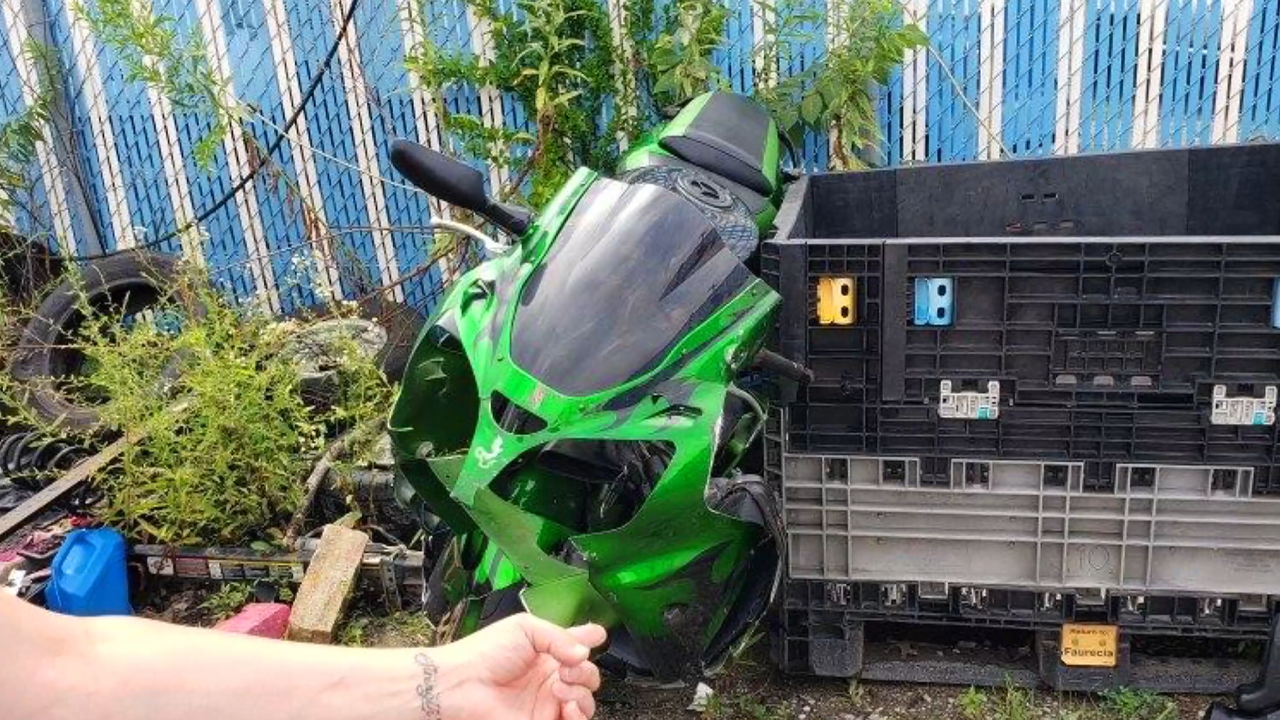Dennis Crowder III can’t help but feel emotional when he looks at photos from July 21, 2020. He sees his totaled 2002 Kawasaki Ninja. He also sees the banged-up moving truck he had hit going 60 miles per hour. “Sometimes, it feels like a dream,” Dennis explained.
Dennis, a resident of Covington, Kentucky since 2001, has been driving motorcycles since he was 16 years old. “I don’t remember driving to work,” he says. “I don’t remember anything except waking up in the hospital.” He drove his motorcycle to work that day because his car was in the shop.
It was an ordinary day that was anything but as he took a corner in a hurry and hit the side of the moving truck. Emergency medical services (EMS) transported him to the region’s only level I adult trauma center — which means the right mix of specialists and medical resources are available at a moment’s notice — at UC Medical Center.
His parents got the call that no parent wants to receive. “They were told that I had been in a motorcycle accident and was in the intensive care unit. The staff told them they weren’t sure if I would live or die.” His parents immediately started the hour drive to the hospital.
When Dennis arrived in the Emergency Department, UC Health’s trauma team assembled so they could treat him as quickly as possible. The trauma team consists of a multidisciplinary group of experts from around the hospital who respond at once when trauma patients arrive.
“We heard we had a very severely injured patient who had sustained a motorcycle accident. When that happens, we activate a system that results in the immediate availability of a surgical team, an operating room and a group of emergency medicine doctors, nurses and medics — probably 100 people took care of him in those first two to three hours of his stabilization,” said Amy Makley, MD, associate professor in the Department of Surgery at the UC College of Medicine and a UC Health trauma surgeon.
Dr. Makley led the trauma team as they worked tirelessly to save Dennis’ life. Even with UC Health’s advanced resources and large, diverse clinical team, the outlook didn’t look good. In total, Dennis broke 14 ribs — 12 on his left side and two on his right. He also broke his elbow, fractured his hip and fractured a bone in his lower left leg. On top of that, his left lung was severely damaged, and his heart was in critical condition.
Things looked so bleak that Dennis’ family came to visit in preparation for his possible death.
Running out of time and options, the trauma team placed Dennis on extracorporeal membrane oxygenation (ECMO), a device that gives the heart and lungs support when they cannot function on their own. ECMO gave his heart and lung critical time to recover. Dennis then underwent a major surgery remove his entire left lung because of the extent of the damage. At this point, his odds of survival were probably less than 1%.
“Particularly when you don’t have both lungs anymore, we’re able to put patients on a circuit that, outside of the body, oxygenates the blood and then pumps it back in,” Dr. Makley explained.
Dennis fought for his life, and the trauma team worked nonstop to give him hope and save his life.
“For us as trauma surgeons, we push the limits of the technology that we have, because we know it’s (the survival rate) is never 0%,” said Vanessa Nomellini, MD, PhD, associate professor in the Department of Surgery at the UC College of Medicine and a UC Health trauma and critical care surgeon.

